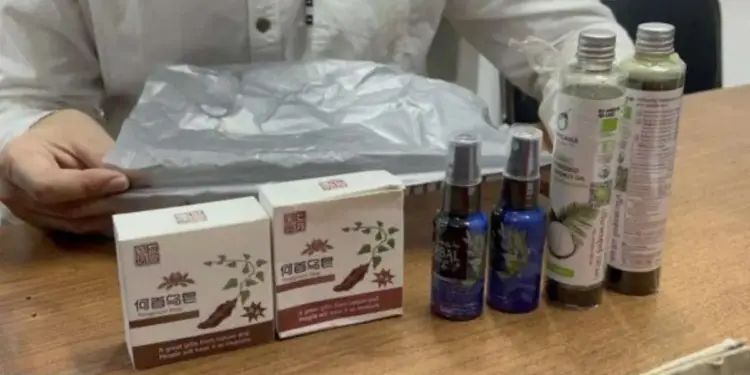A 32-year-old Indian tourist has filed a complaint with Pattaya police after alleging he was misled into buying overpriced beauty products in the Baywalk area. The incident, which reportedly took place in the early hours of September 5, has raised fresh concerns about aggressive selling tactics and pricing practices aimed at visitors in the popular Thai resort city.
The complaint has drawn attention not only because of the sums involved but also because it highlights ongoing tensions between tourist protection efforts and the persistence of questionable retail operations in Pattaya. Local authorities have been urged to investigate to safeguard the city’s reputation and reassure future visitors.
Pattaya tourist alleges he was overcharged
Mudasir Ashraf, a 32-year-old tourist from India, told Pattaya police he was approached by two men who appeared to be foreign nationals while walking along Second Road near the Baywalk project. He said the men engaged him in conversation and persuaded him to follow them to a shop inside the Baywalk complex to buy hair-growth and beauty items they were promoting.
Ashraf claims that once inside the shop he was presented with multiple products and pressured into making a payment by bank transfer. Feeling he had been misled about the price and the necessity of the items, he later returned to the police station to report the incident and seek redress.
Man claims he paid 24,175 baht for beauty items
According to the complaint, Ashraf paid a total of 24,175 baht — roughly £550 — for two bottles of herb-infused coconut oil, two bottles of shampoo, and two boxes of ginseng soap. He says the payment was made under pressure when shop staff insisted he complete a bank transfer immediately.
After realizing the amount seemed excessive for the products bought, Ashraf decided to notify the authorities and request intervention. His account highlights the vulnerability tourists can face when confronted by persuasive street approaches and unexpected in-shop demands.
Shop staff insist prices were clearly displayed
When police accompanied Ashraf to the shop to confront staff over the payment, the employees maintained that prices had been clearly displayed and that there was nothing improper about the transaction. Staff reportedly expressed displeasure at being accused and argued that their pricing and sales practices were transparent.
Still, Ashraf and the shop were unable to reach a complete agreement on the spot, with the visitor insisting the prices were inflated and the shop standing by its signage and procedures. The differing accounts underscore the difficulty in resolving such disputes when evidence and expectations clash.
Police probe, partial refund and tourism concerns
Following discussions, the shop agreed to issue a partial refund of 22,800 baht (about US$710), though it also warned it might pursue legal action if its reputation was harmed by the complaint. Pattaya police have recorded the incident and are investigating, but the outcome may depend on further evidence and statements from all parties involved.
The case has struck a chord because similar complaints continue to surface despite earlier crackdowns on aggressive or fraudulent selling tactics in tourist areas. Local officials are being urged to conduct comprehensive investigations to prevent repeat incidents and to protect Pattaya’s image as a safe, welcoming destination. In a related development, a Phuket clothing store owner has offered a 6,000 baht reward for tips after a foreign woman was caught allegedly swapping a price tag to pay less, showing these issues are not confined to a single locale.
As investigations proceed, the incident serves as a reminder for tourists to stay alert when approached on the street and to check prices and payment methods carefully before completing purchases. For Pattaya, the challenge will be balancing a vibrant tourist economy with stronger consumer protections to maintain trust in the city’s businesses and attractions.



















